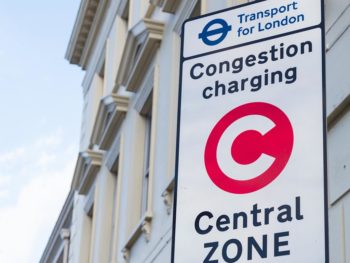The Government is being urged not to expand the London Congestion Charge as the row over the conditions for Transport for London’s proposed emergency funding plays on.

Although the charges, which currently cover around 1% of Greater London, were temporarily increased to £15 in June, while the hours of operation were increased and the residents’ discount was later closed to new applicants, ministers are now calling for the zone to be extended to the North and South Circular, under the latest government funding package for Transport for London.
The funding, required due to the drop in passenger income as a result of the pandemic, is conditional upon what Mayor of London Sadiq Khan has labelled as a “triple whammy of higher costs”. This would see the zone extended in 12 months’ time, at roughly the same time as the ULEZ expands and covering approximately four million more Londoners. Meanwhile the Government also wants to increase TfL fares by more than RPI+1 per cent – well above the inflation rate. And it’s planning to remove free travel for under-18s and the removal of the 60+ photocard.
Speaking earlier this month, Khan urged the Government to reconsider its “ill-advised and draconian” proposal and warned its plan would “punish Londoners for doing the right thing to tackle Covid-19” by having found alternatives to public transport during the pandemic.
But now Logistics UK has also waded into the ongoing row with a plea to the Government not to expand the Congestion Charge, set out in a letter to Transport Secretary Grant Shapps.
David Wells, chief executive of Logistics UK, said: “Logistics businesses continue to struggle financially and operationally as a result of the Covid-19 crisis and this additional burden would be a significant blow to the recovering logistics sector.
“With little alternative to using lorries and vans to keep the capital’s businesses, schools, shops and homes stocked with the goods and services they need, these changes amount to a tax on deliveries and would therefore have little effect on commercial vehicle movements. Instead, it would simply increase operating costs for those charged with delivering to meet the capital’s needs, including supporting the vulnerable and those self-isolating with home deliveries, during this difficult time.”

